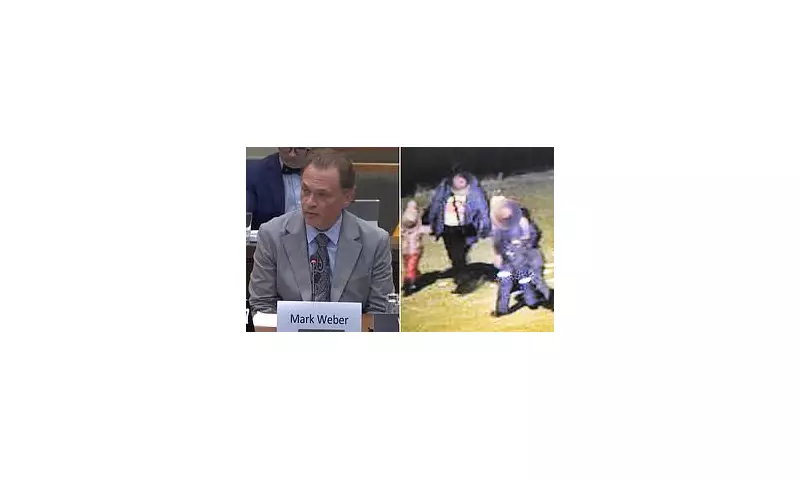
Canadian border authorities are allowing asylum seekers into the country without proper security screening, relying instead on an honour system operated through mobile phones, according to shocking revelations from immigration officials.
Staffing Crisis Forces Security Compromises
Mark Weber, president of the Customs and Immigration Union, told Parliament this week that refugee claimants are entering Canada without undergoing security screening due to critical staffing shortages. The situation has become so dire that border officials are prioritising speed over security checks.
'In essence - to speed things up because we are short-staffed - we are allowing people into the country without first doing that security screening,' Weber informed the Standing Committee on Citizenship and Immigration during Tuesday's meeting.
How the 'One Touch' System Works
The current process functions as a digital honour system where claimants submit biometrics and basic information through a questionnaire on a mobile application. Under this model, only 'high risk' claimants must complete in-person applications, while those deemed 'low risk' have 45 days after crossing into Canada to complete required forms.
Weber criticised the Canadian Border Security Agency's 'One Touch' model, which launched nationally in 2022 after the system struggled to cope with high volumes of asylum seekers. The system was designed to streamline processing but has created significant security gaps.
'The technology we see the CBSA putting into place is all about self-declaration - it's about the traveller, the refugee claimant, doing everything on their own because we simply don't have the staff to do proper interviews and do what we did previously,' Weber stated.
Alarming Statistics and Consequences
According to Weber, approximately ten percent of claimants don't even complete the required forms, forcing CBSA officers to track them down for removal. This creates a situation where individuals can essentially disappear into Canada without proper documentation or vetting.
'We're not verifying anyone's story at all. The ability for us to confirm whether or not their story is genuine has really been removed,' Weber continued. 'It's exactly the people with the greatest motivation to not self-declare who are going to be the ones who don't self-declare and don't report back.'
The staffing crisis appears severe despite Budget 2025 promising to hire 1,000 new CBSA officers. Weber revealed that staffing shortages are actually over twice that number, creating an unsustainable situation for border security.
Defence of the System
During the same meeting, Vice President of CBSA Intelligence and Enforcement Aaron McCrorie defended the processes as having 'multiple layers of defence.' He insisted that all asylum claimants spend considerable time with border services officers for initial risk assessments.
'Somebody claiming asylum out of port of entry, 100 percent of them will spend time, and considerable amount of time, with the border services officer to do that initial risk assessment,' McCrorie stated.
He explained that officers work to understand claimants' identities, assess admissibility into the country, and determine eligibility to make claims. The biometrics and information submitted upon entry are cross-referenced against border security and law enforcement databases.
'It's a very rigorous process. Is it perfect? No, there is no perfect system. And that's why we have subsequent layers of defence,' McCrorie told CBC.
Security Implications and Lost Intelligence
Weber emphasised the critical importance of human interactions at the border for maintaining national security. He warned that reduced face-to-face contact between border officers and those entering Canada means losing valuable intelligence and the ability to detect patterns and warning signs.
'Claimants spend significantly less time meaningfully interacting with officers, with the result of reduced security for the sake of expediency,' Weber reported to the Toronto Sun.
He highlighted that previous procedures allowed officers to ask follow-up questions, verify claim authenticity, and identify indications of coaching, human smuggling, or other suspicious activities.
According to Canadian government data, the country processed 89,385 asylum claims at land, air and sea ports of entry. Many seekers originated from Haiti, India, Nigeria and Iran, according to reports.
The revelations come during discussions about Bill C-12, known as the 'Strong Borders Act,' which proposes restrictions on asylum eligibility among other measures. Weber's testimony suggests current systems may be inadequate for proper border control.





